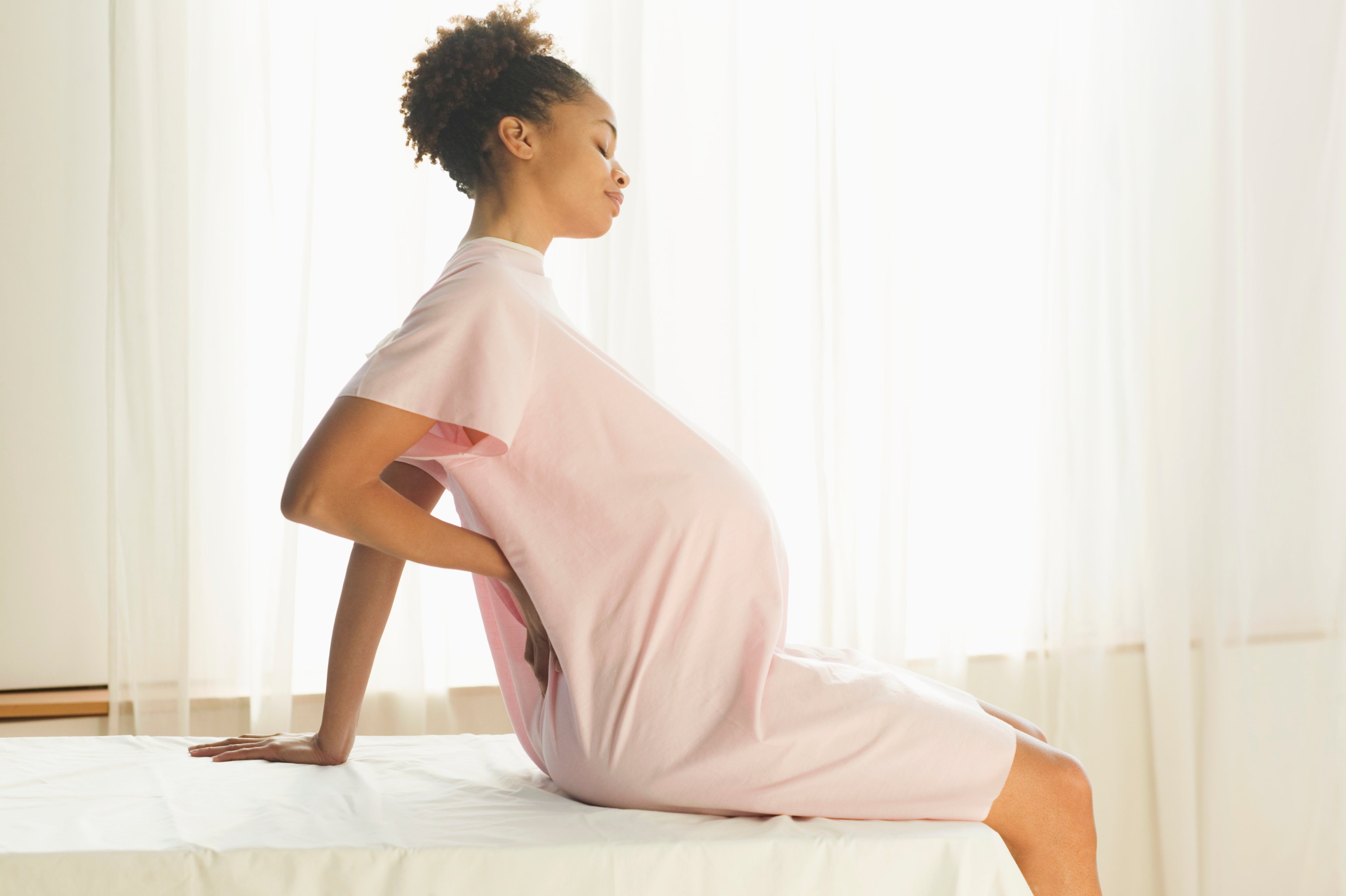
To say that your body undergoes a complete transformation during pregnancy is a huge understatement. As women, we generally go through a lot, but while creating life in the womb, your hair is enduring quite a transition of its own.
When I was pregnant three years ago, I had the best hair of my life. It was long, thick and felt unbreakable‑quite the contrast to other bodily changes. But a few months after giving birth, I had my worst mane to date. It started shedding like crazy. It was brittle, dry and *gasp*…see through in the back. What was happening? Until now, I was unclear.
I’m not the only one who experienced these significant changes and although I’ve successfully brought my hair back to life, answers are still needed. So, I consulted with two hair loss experts to find out what really happens to our hair during pregnancy and how to avoid strands from completely self-destructing, post-partum.
Subscribe to our daily newsletter for the latest in hair, beauty, style and celebrity news.
Dr. Amy McMichael, MD Professor and Chair Department of Dermatology Wake Forest Baptist Medical Center in Winston-Salem, NC and Maria Halasz, hair loss expert and CEO of Évolis Professional, a hair regrowth system, get to the root of the pressing question…what the F*$% is happening to my hair?
PREGNANCY PERKS
During pregnancy, there are many hormonal changes, but mostly increases in progesterone (hormone released by ovaries that help maintain pregnancy).
“These changes cause the growth phase of the hair to be prolonged,” says Dr. McMichael. The growth phase for hair is usually 3-5 years and there should be approximately 8-10% of hairs shedding at any given time.
However, during pregnancy, the strands that are supposed to shed don’t and the hair becomes thicker and fuller. Dr. McMichael clarifies that prenatal vitamins causing increased hair growth is indeed, a myth.
BACK TO THE NORM
Unfortunately, once the baby is delivered, the hair cycle reverts back and hairs that stayed on the scalp shed. Also, a process known as telogen effluvium causes additional shedding as hormones go back to normal post-pregnancy levels.
This process occurs when the body has any shift in hormones. The change in hormones is seen as a physiologic stress to the system. As our bodies work overtime to level our hormones, less energy goes to hair growth (which is a very energy-rich process) and the hair sheds temporarily.
“Our newly acquired mane starts falling out, and it can be shocking how much volume and lustre we lose,” says Halasz. She also acknowledges how distressing the uncontrollable process can be, “especially when you add sleepless nights and less than ideal nutrition that often accompanies new motherhood.”
EDGE WOES
Telogen effluvium affects the whole scalp with shedding from all areas, but the most noticeable areas of loss are the bilateral temples of the frontal scalp (also known as the hairline or edges).
Many times, the crown of the scalp has mild patterned hair loss that is uncovered by the shedding from the telogen effluvium. “As the shedding slows and the hair regrows, these areas fill back in,” McMichael adds.
THE GOOD NEWS ON HAIR LOSS
Post-pregnancy hair loss is not at all permanent. “In most cases, post pregnancy alopecia is self-resolving over time,” says Halasz.
Shedding usually starts approximately 2-3 months after delivery of the baby and continues for 5-6 months, then begins to improve.
RIDE IT OUT
“Reversing the effects of post pregnancy hair loss is one of those processes that just has to right itself,” says McMichael.
There is no way to prevent the process, though not everyone gets this shedding. McMichael suggests maintaining a good diet right after giving birth to help ensure that there is not a prolonged form of hair loss.
TRY A TOPICAL
Halasz has a slightly different solution. She recommends Evolis, a product that targets FGF5, a genetically predetermined protein in the scalp that regulates our individual hair cycles.
The active ingredients in Evolis’ are organic botanical actives that inhibit FGF5 to prevent hair from transitioning into the rest and fall out phases.
While it’s critical to consult your physician before incorporating any product into your regimen, Halasz says, “to maximize nature’s gift of beautiful pregnancy hair, it is best to start using Evolis during pregnancy, and carry through after birth, as it ensures that the new hair growth remains.”
